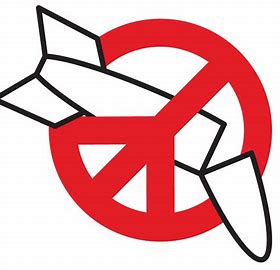 BEATRICE FIHN, Executive Director of the International Campaign to Abolish Nuclear Weapons (ICAN) will travel to Lithuania to meet with Svietlana Tsikhanouskaya today (3 February 2022). Tsikhanouskaya is a Belarusian human rights activist and politician who ran in the 2020 Belarusian presidential election as the main opposition candidate, after her husband Sergei Tikhanovsky was arrested by the Belarusian authorities.
BEATRICE FIHN, Executive Director of the International Campaign to Abolish Nuclear Weapons (ICAN) will travel to Lithuania to meet with Svietlana Tsikhanouskaya today (3 February 2022). Tsikhanouskaya is a Belarusian human rights activist and politician who ran in the 2020 Belarusian presidential election as the main opposition candidate, after her husband Sergei Tikhanovsky was arrested by the Belarusian authorities.
The two will discuss threats to democracy and peace and security in the region, including the forthccoming referendum to rewrite the Belarusian Constitution, undermining democracy and removing Belarus’ nuclear-weapon-free commitment. They will also address how civil society and the Treaty on the Prohibition of Nuclear Weapons can work together to stop these worrying developments.
Speaking from Geneva prior to the meeting, Ms. Fihn said, “With little notice, nuclear disarmament gains made at the end of the Cold War are under threat of being rolled back. Belarus undermining democracy and abandoning its nuclear-weapon-free promise at this time will only add fuel to the fire”
Strategic nuclear weapons were deployed in Belarus, along with Kazakhstan and Ukraine, before the fall of the Soviet Union. Belarus surrendered these weapons and included a pledge to remain nuclear-weapons-free in its 1991 constitution. Ms. Fihn added, “The situation in Belarus, along with conflict in Ukraine, Russia’s sabre-rattling and off-hand remarks by the NATO Secretary-General to deploy nuclear weapons in Eastern Europe, highlight why all states must urgently join the nuclear ban treaty. We cannot rely on the ‘wisdom’ of bellicose men who threaten mass murder with banned weapons, this moment requires the binding force of a global treaty.”
Svietlana Tsikhanouskaya looked forward to the meeting saying: “Once Belarus regained independence in 1991, it was a popular decision among Belarusians to voluntarily give up its sizable nuclear weapons arsenal. Throughout history, our country defended itself in numerous wars, including in the major European wars of the 20th century. The Constitution of 1994 adopted the pursuit of non-nuclear and neutral status by Belarus.
“These clauses are now under threat as the dictatorship is trying to get rid of them without asking Belarusians. Moreover, the regime has threatened to bring back nuclear weapons to Belarus – an unthinkable departure from the concept of Belarus as a responsible donor of regional security. All these manoeuvers follow the loss of legitimacy by Alyaksandr Lukashenka in the falsified presidential elections of 2020, massive repressions and complete detachment from the will of people and national interests. We must take on the responsibility to defend the democratic choice of the Belarusian people and prevent the abuse of Belarus by rulers who serve only themselves at the expense of the global nuclear non-proliferation regime”.
A referendum is scheduled for 27 February, which could remove a founding pledge to be a neutral, nuclear-weapon-free state from the constitution of Belarus. President Alyaksandr Lukashenka raised the possibility of Belarus hosting Russian nuclear weapons during an interview in November 2021, saying: “I would offer Putin to return nuclear weapons to Belarus.” The Belarusian Minister of Foreign Affairs echoed this statement in December. A Kremlin spokesperson said Russia would consider deploying nuclear weapons to Belarus if Ukraine were granted NATO membership or US nuclear weapons were deployed in Poland. Russia also sent two nuclear-capable Tu-22M3 bombers to patrol its western borders with Belarus, according to the Belarusian defence ministry.